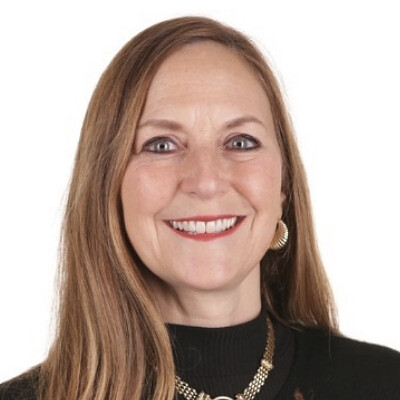
Stephanie
Felgoise,
PhD, ABPP
Dir of IPE; Chief of Team-Based Care; Professor, Chair, Director, PsyD Program in Clinical Psych
Philadelphia College of Osteopathic Medicine
Dr. Felgoise earned her BS in Psychology from University of Pittsburgh, and MS and PhD from Hahnemann University (APA-accredited internship at UMDNJ-Robert Wood Johnson Medical School). Board Certified in Clinical Psychology (ABPP), she has expertise in Cognitive-Behavioral Therapy, Couples Therapy, Interprofessional Education and Practice. Dr. Felgoise is Professor, Chair, & Director of the PsyD Program in Clinical Psychology; Director of Interprofessional Education and Chief of Team-Based Care at Philadelphia College of Osteopathic Medicine (PCOM) where she has been faculty for 26 years. She has published on aspects of quality of life, caregiving, coping with ALS, coping and adjustment to a diagnoses of cancer, IPE, and Problem-Solving Therapy. She is a licensed clinical psychologist in part-time clinical practice in addition to her full-time position at PCOM.
Presenting at the Nexus Summit:
The Center for Disease Control (CDC, 2024) defines personal health literacy as “the degree to which individuals have the ability to find, understand, and use information and services to inform health-related decisions and actions for themselves and others.” Improving health literacy is an ideal, shared value, and ethical responsibility of all team members in collaborative, patient-centered care in addition to improving patients’ trust and health equity (CDC, 2024). Thus, it is an ideal topic to bring two or more professions together for interprofessional education (IPE). This presentation…
Clinical psychology doctoral students do not universally have primary or team-based care experiences. Likewise, student healthcare professionals may not interact with clinical psychologists in primary care, as this role is still emerging. Therefore, as a requirement, students in the Clinical PsyD program at the Philadelphia College of Osteopathic Medicine shadow physicians and their accompanying medical students for four hours in clinic. Students may attend brief chart rounds, patient appointments, healthcare team huddles, and warm handoffs with other team-based care professionals (medicine,…
Background:Leadership development and professional identity formation are critical to early interprofessional training (Shrivastava et al., 2022). This study analyzed self-reflections from second-year medical (DO) students who co-led interprofessional education (IPE) sessions with Clinical Psychology doctoral (PsyD) students as an IPE requirement. Leadership training was integrated into the curriculum by scaffolding the learning experiences across cohorts. This project introduces a faculty-directed and coordinated, student-led IPE initiative that utilizes film-facilitated discussions to…
Research on volunteerism has been shown to increase happiness in medical students; improve self-esteem, self-efficacy, and social connectedness; lead to better well-being; improve physical well-being, decrease stress, and improve overall quality of life in general adult populations. Volunteerism also creates fellowship and fosters community connections. Thus, volunteerism helps to address the wellness of the healthcare team (quadruple aim of healthcare), and bring future healthcare professionals closer to the populations they aim to serve. An IPE module focused on volunteerism, including PCOM…
This presentation explores an interprofessional education (IPE) module featuring a powerful narrative from a 53-year-old psychologist, ovarian cancer survivor, mother, and alumna of the host institution. She shared her 23-year journey, beginning with a diagnosis of a rare form of ovarian cancer at age 30 while pregnant and completing her doctoral training in psychology.Her story illuminated the complexity of navigating medical decisions in the absence of clear evidence-based guidance, while managing the emotions of a life-altering diagnosis. She described encounters with healthcare…
